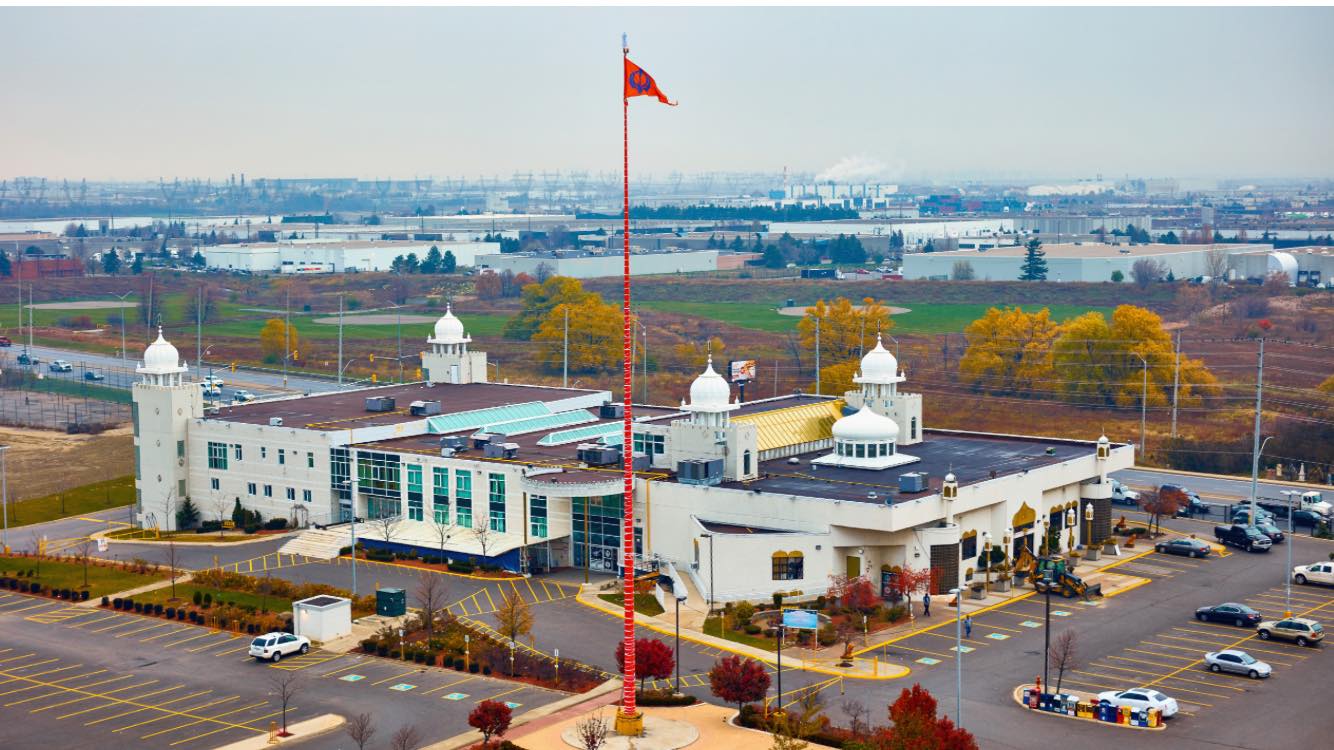Sikh communities across the country are struggling to get religious workers from India because of restrictive immigration policies and the current visa processing backlog, which have effectively barred their entry into Canada, according to the World Sikh Organization (WSO).
In a letter addressed to Minister of Immigration, Refugees and Citizenship Canada (IRCC) Sean Fraser, WSO Canada noted that “(t)hese policies have frozen the arrival of Sikh parcharaks (religious workers) into Canada for the past two years. In short, Canadian gurdwaras (Sikh temples) are currently in crisis.”
“The situation is unsustainable and has resulted in severe strain on gurdwaras and the parcharaks themselves,” the letter states.
IRCC did not respond to New Canadian Media’s queries on the letter but has previously stated that the pandemic has had a significant impact on Canada’s immigration system and affected processing times. It has an estimated 1.8 million visa applications in the queue, according to government data from December.
Normally, religious workers coming to Canada are eligible for an employer-specific work permit and are exempt from the labour market impact assessment process.
WSO said that in addition to backlogs, the Sikh community in Canada, which now numbers over 600,000 and relies on the parcharaks to serve their spiritual needs, have significant difficulties in communicating with the High Commission of Canada to India.
“The freeze on parcharaks coming to Canada has taken a toll on the mental and physical health of those currently serving in gurdwaras, many who (sic) have not been able to return to their families for more than two years,” the WSO’s letter states.
It also points out that the Consulate General of Canada to India, in Chandigarh has revised instructions that require gurdwaras “wishing to sponsor a new religious worker to send information about the religious worker being replaced including their boarding pass or a ‘copy of their entry stamp back to India.'”
“This requirement would oblige gurdwaras to send parcharaks back before the processing of visas for the parcharaks coming to replace them. This will result in smaller gurdwaras being without any parcharak while waiting for the processing of new applications for the incoming individuals,” the letter states.
“The new instructions do not appear to have been developed with any wide consultation or input from Canadian gurdwaras and will lead to significant hardships.”
Catherine Sas, a veteran Vancouver-based immigration lawyer, says IRCC is so far behind in everything it is doing that it is “absolutely disgraceful.”
“It looks like all the staff that took COVID leave never came back…other departments are doing okay…CRA (Canada Revenue Agency) is doing okay, CBSA (Canadian Border Services Agency) is doing okay, but at IRCC it’s simply dysfunctional,” Sas tells NCM.
“This situation is no different than applications involving foreign workers, caregivers and spouses waiting to be reunited, all of whom have been waiting for years to get their visas… It’s tragic, and all we get from IRCC now is ‘too bad, so sad, we are backlogged, we’ll get to it when we get to it.'”
Sas suggests the WSO should engage with Canada’s 15 Sikh MPs and push them to raise this issue in Ottawa and find solutions.
“You simply can’t get any answers from IRCC,” she says. “So, get this (WSO) letter to the MPs, and maybe that will get the attention required.”
Her comments are echoed in a recent submission by the Canadian Immigration Lawyers Association (CILA) to the Senate Working Group on Immigration.
“The client experience is currently at an all-time low, primarily due to a backlog of cases, slow processing times, frustrations related to old and new technology, and generic responses to status inquiries that do not tell clients what they need to know,” CILA’s submission states.
“Applications are often rejected as incomplete due to a simple document not being included and could easily be rectified with a simple call or email to the applicant with a short deadline to submit the missing document.”
A multiple-award winning journalist, Fabian Dawson is an internationally acclaimed author, filmmaker and media expert. His work over the last four decades spans the globe and he also serves as a consultant/strategic advisor to a variety of international companies. As deputy editor-in-chief of The Province, part of the Postmedia chain, Dawson led initiatives within a special publications group to provide directed content for a variety of organisations. He was named the 2019 recipient of the Bruce Hutchison Lifetime Achievement Award at Jack Webster Awards. Dawson has been invited by the governments of India, Malaysia, Taiwan, China, Hong Kong and the United States to act as a media observer/advisor on a variety of Asian-Canada issues. Dawson, now operates FD Media, which specializes in harnessing editorial assets to revenue generating opportunities.






[…] Source: Sikh religious workers kept out by restrictive visa requirements […]